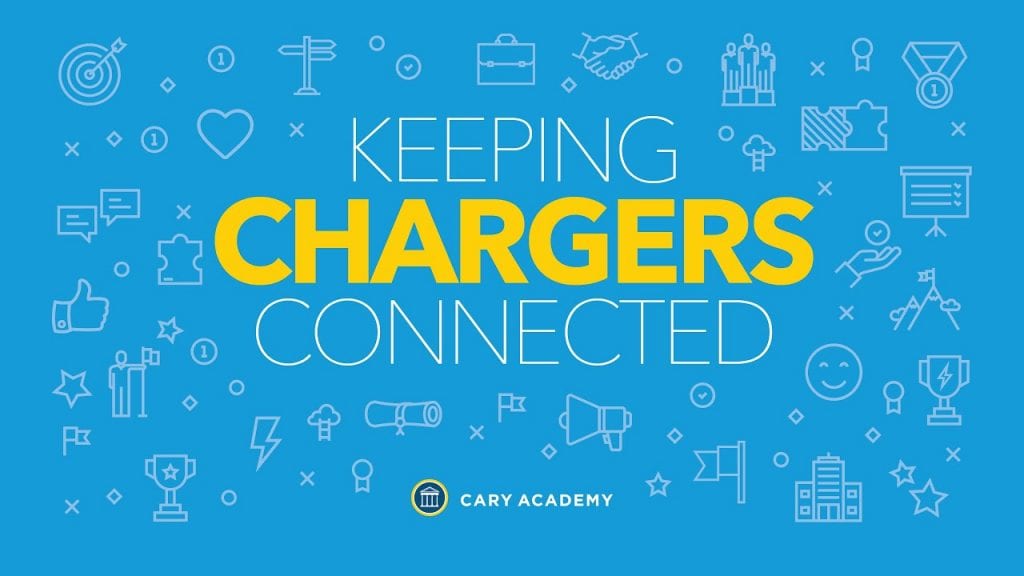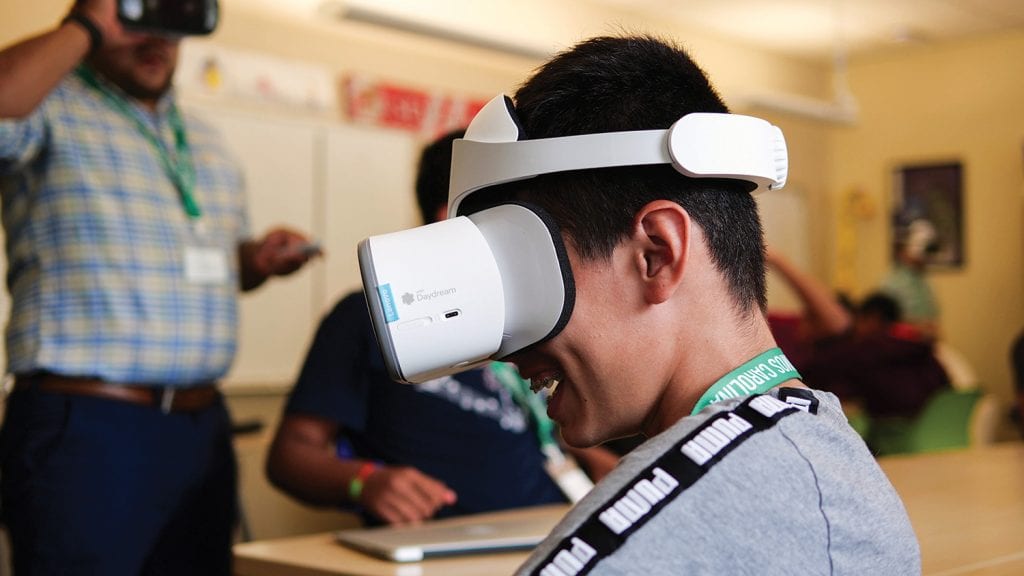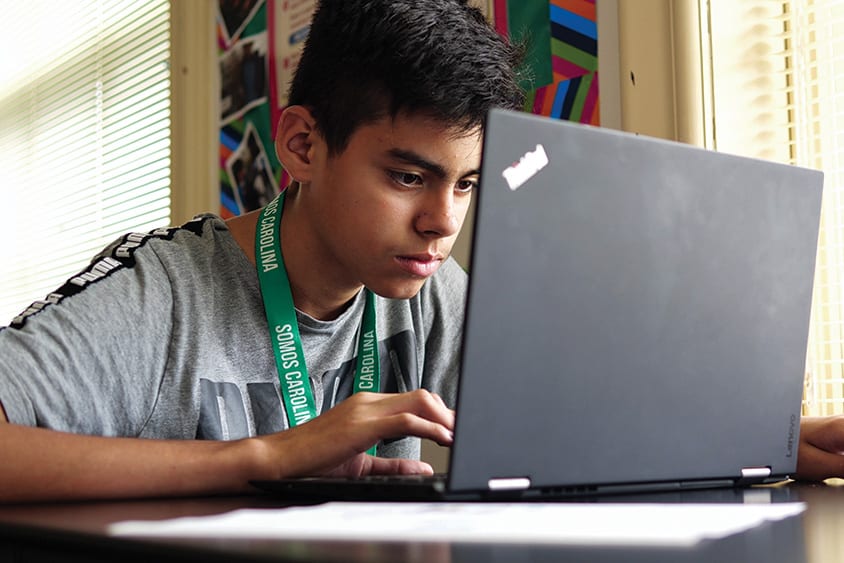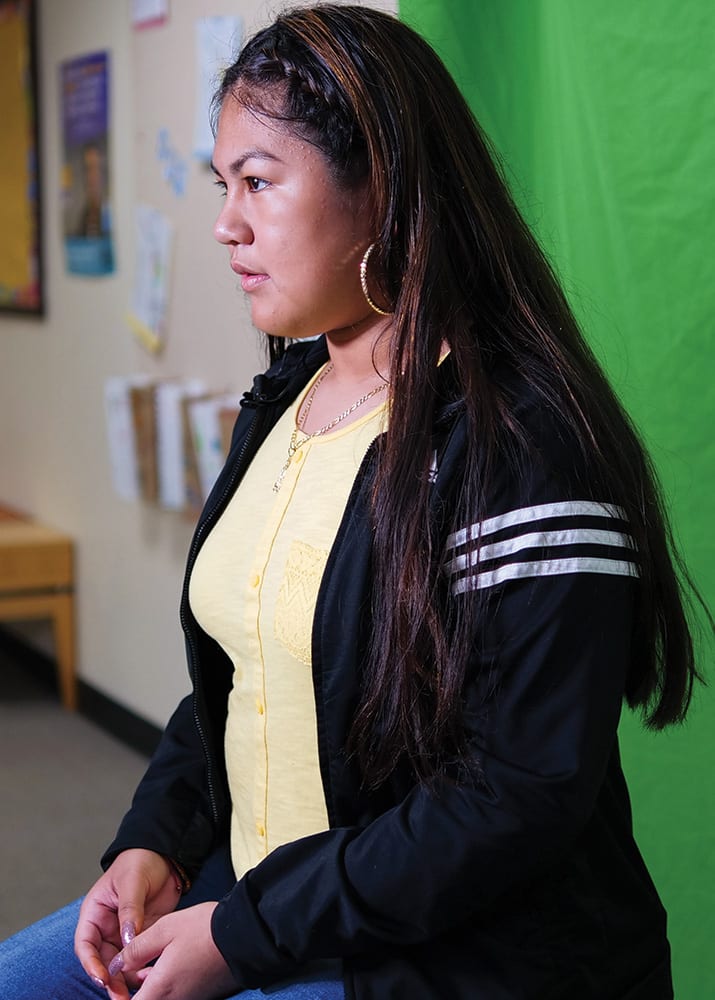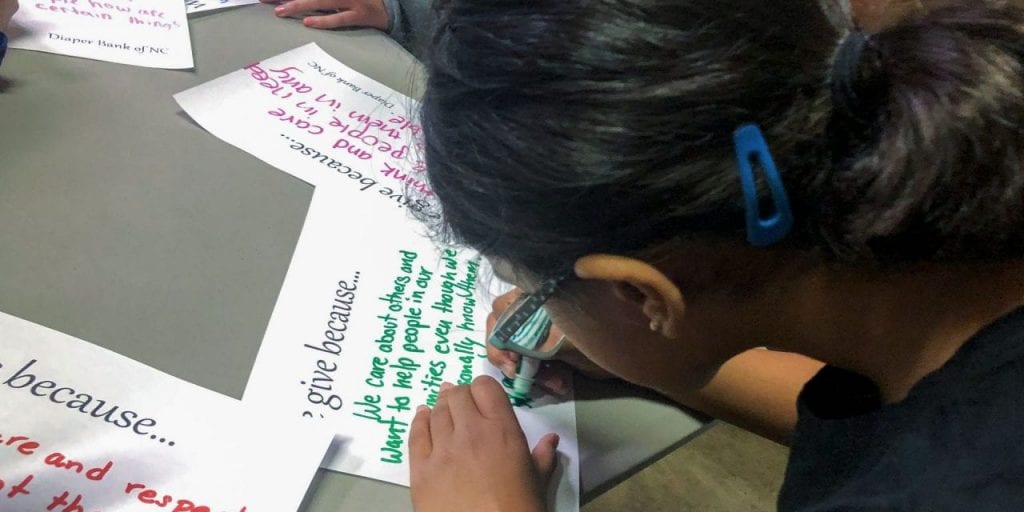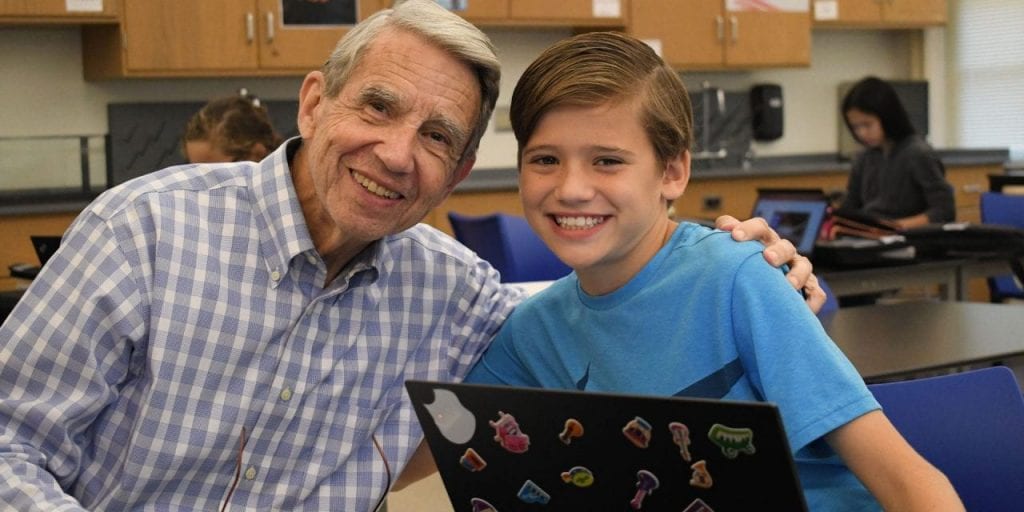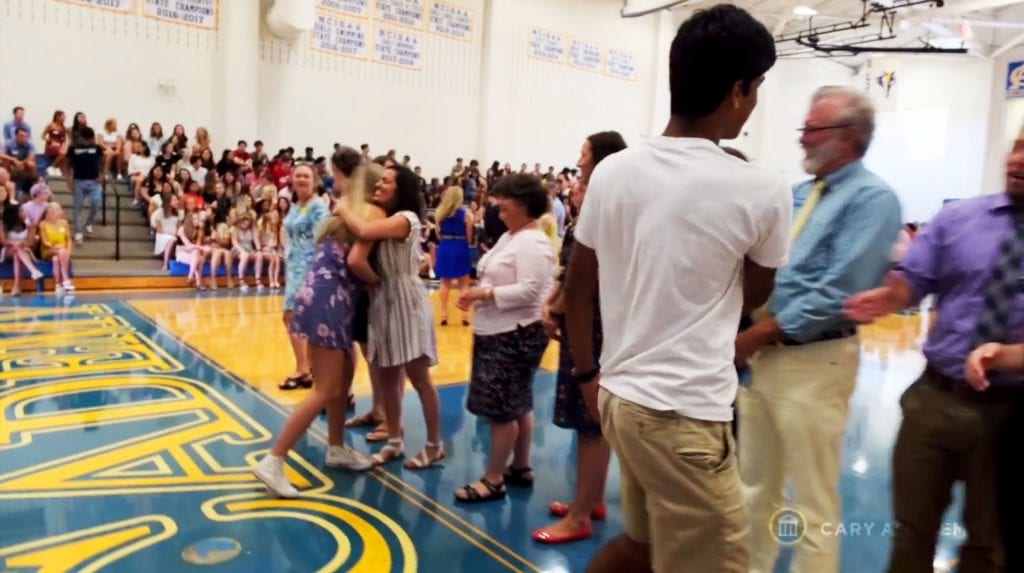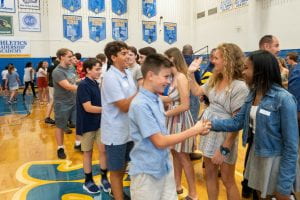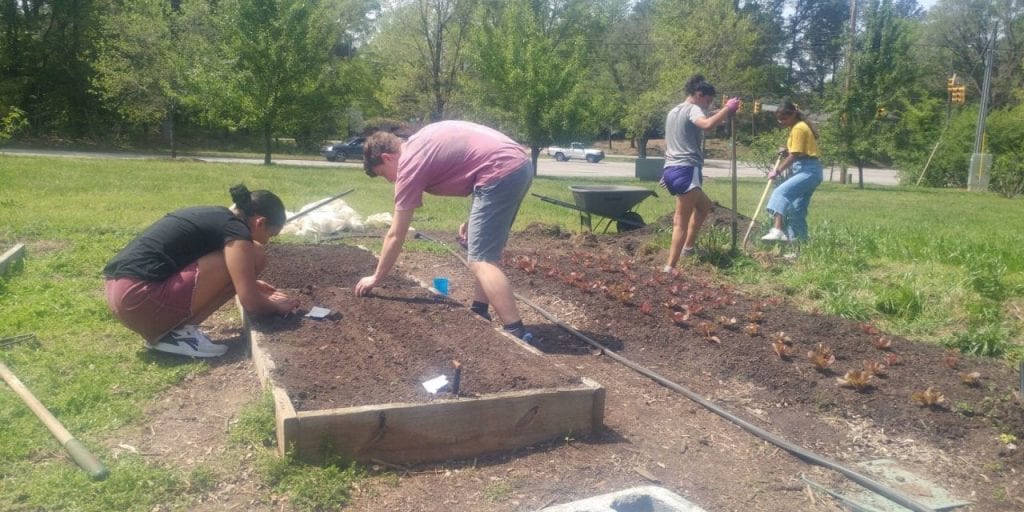By Kathryn Chao, Hannah Gordon, Clay Thornton, and Michael McElreath
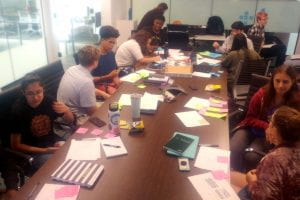 This summer, CA’s Center for Community Engagement offered a new intensive experiential course: Urban Design for Social Justice. Designed, organized, and sponsored by CA, the course was a pilot initiative to explore authentic opportunities for CA students to collaborate in impactful ways with their peers at other public and private schools on challenging community issues.
This summer, CA’s Center for Community Engagement offered a new intensive experiential course: Urban Design for Social Justice. Designed, organized, and sponsored by CA, the course was a pilot initiative to explore authentic opportunities for CA students to collaborate in impactful ways with their peers at other public and private schools on challenging community issues.
Over the course of two weeks, three CA juniors—Kathryn Chao, Hannah Gordon, and Clay Thornton —collaborated with nine of their peers from Wake Young Men’s Leadership Academy, Wake Young Women’s Leadership Academy, Enloe High School, and St. Mary’s. In partnership with local nonprofit Passage Home, they researched poverty, gentrification, and the affordable housing crisis in Raleigh and collaborated on real-world solutions.
Like the students, I was grateful for the opportunities presented by this course. While my colleagues—Coach Kimberly Shaw from CA and Alison Chernin from St. Mary’s—and I mentored the students on things like effective group method, the solutions they researched and proposed were their own, and we all learned a lot from them.
This course reflects CA’s deepening commitment to experiential learning that deeply engages learners as co-creators of knowledge. It also illustrates how we are finding ways to reach out into our community to learn with our neighbors; the social justice focus underscores the value we place on equity, diversity, and inclusion.
Read on for an account from our student participants on their experience and its impact. And, stay tuned: there will be more such efforts and opportunities in the coming years!
____________________________________________________________
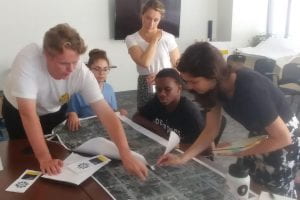 The first morning of our Urban Design for Social Justice course, we walked in baking heat through a variety of neighborhoods in East Raleigh. We saw new apartments and condos in some areas, businesses on main streets, and a few city parks.
The first morning of our Urban Design for Social Justice course, we walked in baking heat through a variety of neighborhoods in East Raleigh. We saw new apartments and condos in some areas, businesses on main streets, and a few city parks.
About an hour in, we noticed an abrupt change in the sidewalk. From a pristine, wide, white, stretch next to brand new apartments/condos, we stepped onto a cracked, narrow, dingy section adjacent to older and run-down homes. Appearing to not have been replaced in years, the walkway grew increasingly more dilapidated after we crossed the street. It seemed like another neighborhood entirely.
In a snapshot, this bifurcated experience set the tone of our course for the next two weeks.
The 12 students in this program were from five different public and private schools in Wake County. Coming from diverse neighborhoods, from Brier Creek in the West to Zebulon in the East, we met each day in downtown Raleigh.
Each of us shared a passion to make a positive difference in or community. Together, we worked with Passage Home, a non-profit striving to break the poverty cycle and mitigate the negative impacts of gentrification on its neighbors in Southeast Raleigh, where two of us live.
Learning about that area alongside peers who knew it well, we worked in three teams to dissect problems posed by Passage Home. Specifically, how to attract a diverse set of residents to affordable housing it will build next year; how to enhance or repurpose two community gardens; and how to better unify the rapidly-changing community.
While it seems that little could be accomplished in a span as short as two weeks, the program concluded with each group pitching their proposed research-based solutions to the CEO of Passage Home. It was tremendously fulfilling to explain the potential tangible effects of our ideas. This hands-on approach was a great way to learn about both the social issues explored as well as the skills required to work in a field like urban design.
While we each had different expectations going in as to what we were getting ourselves into, in hindsight, we all agree that it was ultimately one of the most interesting and beneficial experiences we’ve ever had.
We’ve included some of our personal reflections below.
Hannah:
“This course taught me so many things, not just about the issues in the Raleigh area. I came out of it feeling much more passionate about helping my community, and I also learned valuable lessons that can be applied to real life.
“One of the main things being teamwork. We were put into teams with people that we didn’t know and diving into complex issues with a bunch of strangers was difficult. However, through team bonding (planned and unplanned) we were able to get to know each other better and come up with feasible solutions.
“Another important lesson I learned was about professionalism. We were meeting with professionals and it was important that we presented ourselves in a way that allowed us to be taken seriously.”
Kathryn:
“This course gave me the opportunity to understand how to approach conducting research through interaction. Often at school, research is synonymous with reading about a topic online. In this case, however, the forefront impacts of gentrification include significant disruption within the community. Consequently, going out to see the area and survey residents was the only way in which we could comprehend the problem and its repercussions.
“Throughout the two weeks, we interviewed locals in the neighborhood, sat down with professionals in the realms of both social justice and urban design, and we gained a richer, broader perspective. I have come away from this experience with a deeper appreciation for the complexity of urban design and nonprofit work, as well as the assurance that a desire to incite change can be achieved with the application of deepened perspective.”
Clay:
“While I have participated in social justice work both inside and outside the Cary Academy community, I have never had an experience quite as unique as the Urban Design for Social Justice course. In it, I was able to build an understanding on the impacts of gentrification in my own backyard.
“This course was unique, in that we turned our research and understanding of this issue into tangible plans for resolution. By partnering with Passage Home, our passion and creativity were given a pathway to create change in our own community. To me, that is extremely powerful.
“The process we underwent to reach our final pitches has given me tools that I can use for the rest of my life. The opportunity to solve real-world problems is lacking for most high school students. I am extremely grateful to have been given the opportunity to take this course. I will always remember my time spent with amazing students and teachers who share my passion for equity and social justice.”



